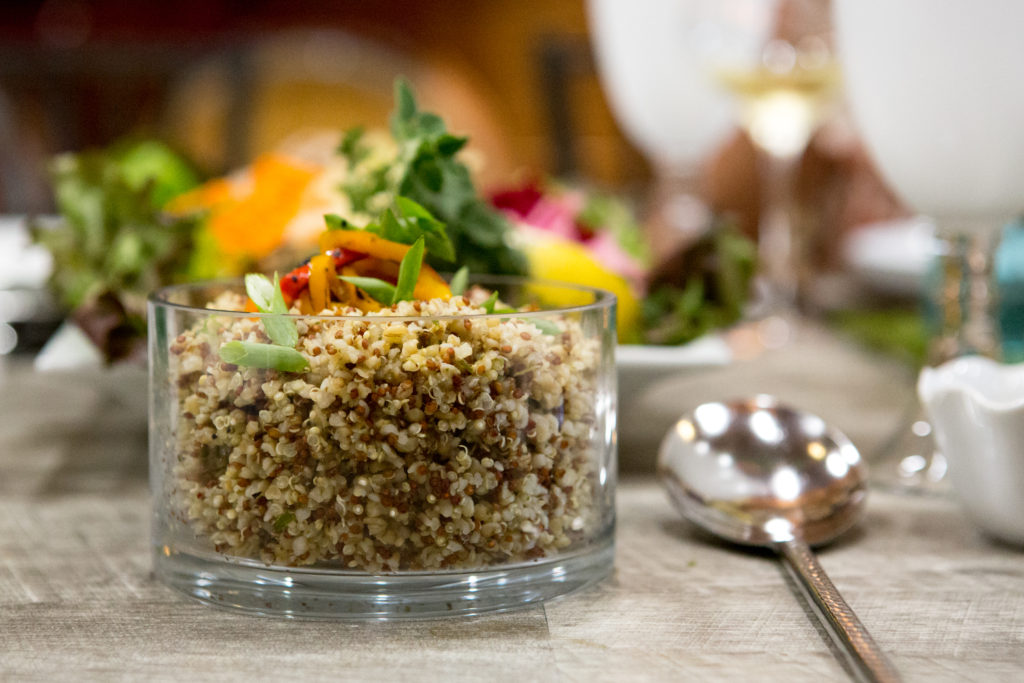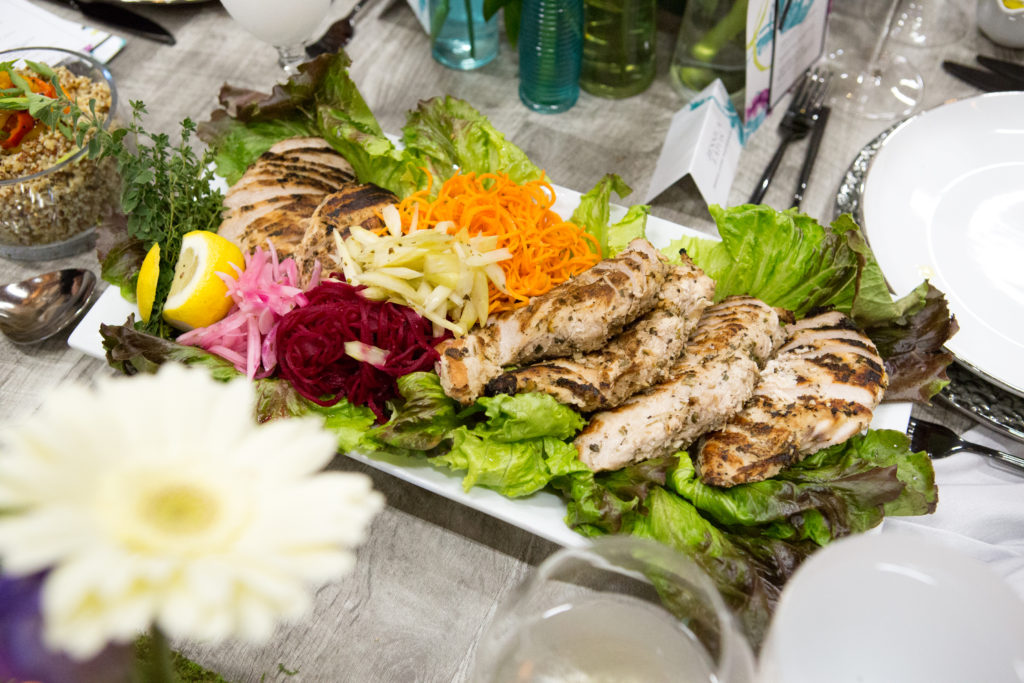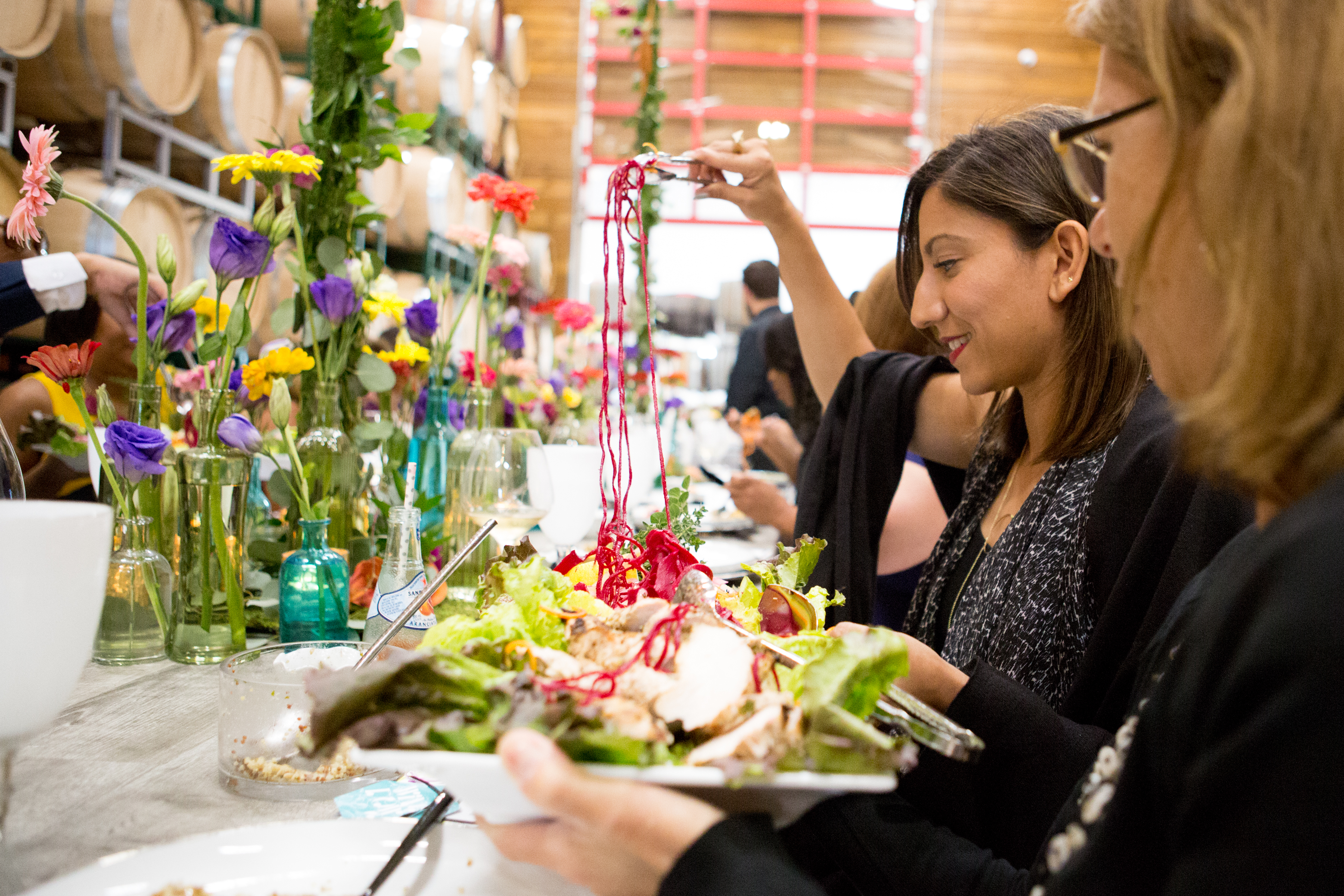You’re counting down to that special moment in your life – planning, organizing, and making sure all the details are carried out appropriately. The most important element of your big day is making sure that all your guests have a wonderful dining experience during your wedding that will have them talking for days. During all the planning, you remember that your best friend is allergic to peanuts, or Aunt Susan is a vegetarian, and the list begins to increase with special instructions regarding the menu. What do you do?
Tip #1: Know the Difference in the Dietary Requests
Dietary requests fall into 3 categories; food allergies, dietary lifestyle preference, and dietary cultural/religious affiliations. Experienced caterers are concerned creating specific menus to accommodate requests based on food allergies (due to health risks) and dietary preferences based on religious affiliations (honoring a culture/faith). Individuals who have a lifestyle dietary preference, are usually accommodated for within “your” menu of choice with side items that are generally a part of a menu such as starches, vegetables, and pastas. Based on the 3 categories and evaluating your guests’ requests be sure to have a conversation with your caterer.

Perfect Planning Events | Jessica Latos Photography | Greenhill Winery | Tasteful Affairs Catering
Tip #2: Know the Food Allergens of Your Guest(s)
When creating your wedding reception menu, be aware of the “type” of food allergen of your guest(s) and have a conversation with your caterer about the details and ingredients of your menu. The top 8 food allergens are milk, egg, peanut, tree nuts, fish, shell fish, soy, and wheat. Communicate the specifics of any concerned allergens so that your caterer can accommodate not only the allergy but to provide a flavorful menu that your guests will enjoy. You and the caterer should have top priority to accommodate the health needs of your guest(s). Food allergen requests are about 5 – 10% of your guest list.

Perfect Planning Events | Jessica Latos Photography | Greenhill Winery | Tasteful Affairs Catering
Tip #3: Be Considerate of Cultural/Religious Dietary Preferences
This type of dietary preference is not as difficult as the food allergy restrictions; however, it is a request that should be taken very seriously. For example, in most Muslim cultures, the most common type of food to avoid in this category is “pork”. Avoid pork in salads, entrees, and most importantly make sure that the food is not cooked with any type of pork fat or oil. Clear communication with your caterer is important; the chef should be aware that pork means no pork – no bacon, prosciutto, pork chops, and the list goes on. Other than that, your chef, can prepare a bountiful assortment of protein entrees for your guests. Other religious faiths require Kosher meals; not a difficult menu to create, however, there are certain requirements to be followed from the preparation to the caring of the food. And only certain caterers are Kosher certified.

Perfect Planning Events | Jessica Latos Photography | Greenhill Winery | Tasteful Affairs Catering
Tip #4: Don’t allow Food Requests Hinder the Dining Experience
Don’t allow the words “food requests” stumble you in planning your wedding day menu. Know your guests – determine if the request is based on an allergen, dietary preference based on lifestyle, or dietary preference based on religious affiliations. Be concerned only with allergen and dietary preference based on religious affiliations. Make sure that you have detailed conversations with your caterer. Make sure that what you are serving is as appealing as the plate without dietary restrictions. And lastly, try to have their meal served the same time as everyone else so that your guests do not have to feel any different than the person sitting beside them.
Note: all photos are those of Perfect Planning Events | Jessica Latos Photography | Greenhill Winery | Tasteful Affairs Catering
Comments are closed.
Dealing With Special Food Request - Wright Group Event Services | Party Event Wedding Rentals | Denver, Co
January 19, 2022
[…] How to Handle “Special” Food Requests from Your Guests […]